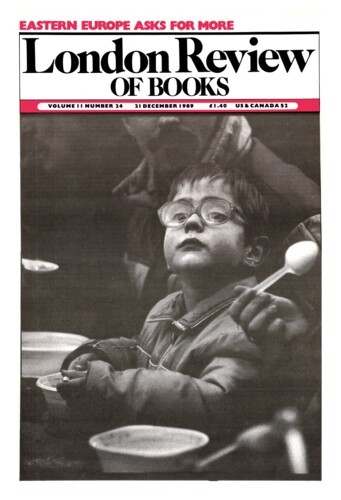Advised by experts
David Worswick, 21 December 1989
Nowadays there are nearly four hundred members of the Government Economic Service, distributed through the various ministries and departments, with a sizable concentration in the Treasury. It will come as a surprise to most people that at the outbreak of war in 1939, there was no professional economist with major responsibility employed in any of the central departments of government. An Economic Advisory Council of some twenty members had been established in 1929, but it ceased to meet after 1931. However, one of its committees, on Economic Information, which included Josiah Stamp, Maynard Keynes and Hubert Henderson, continued until the war, making regular reports to the Treasury. As war grew near, the Government asked Lord Stamp to make a survey of the preparations for war being made by the separate departments, and to make recommendations. From this survey there emerged, at the end of 1939, the Central Economic Information Service, which gave way, a year later, to an Economic Section of a group of economists responsible for surveys and analysis, and a Central Statistical Office, to coordinate the statistics collected by individual departments, and to make regular digests for the use of all parts of government, both bodies being located in the Cabinet Office. This arrangement persisted throughout the war and until 1953, when the Economic Section was transferred to the Treasury, the CSO following in 1989. Throughout its life, the Economic Section was a small unit, with between ten and fifteen members. They were not the only economists being employed by the Government during the war. Apart from Keynes and Henderson, at the Treasury, economists worked in ministries such as Supply and Aircraft Production, and there was the Prime Minister’s Statistical Branch, set up by Churchill at the Admiralty, and continued when he became Prime Minister.

